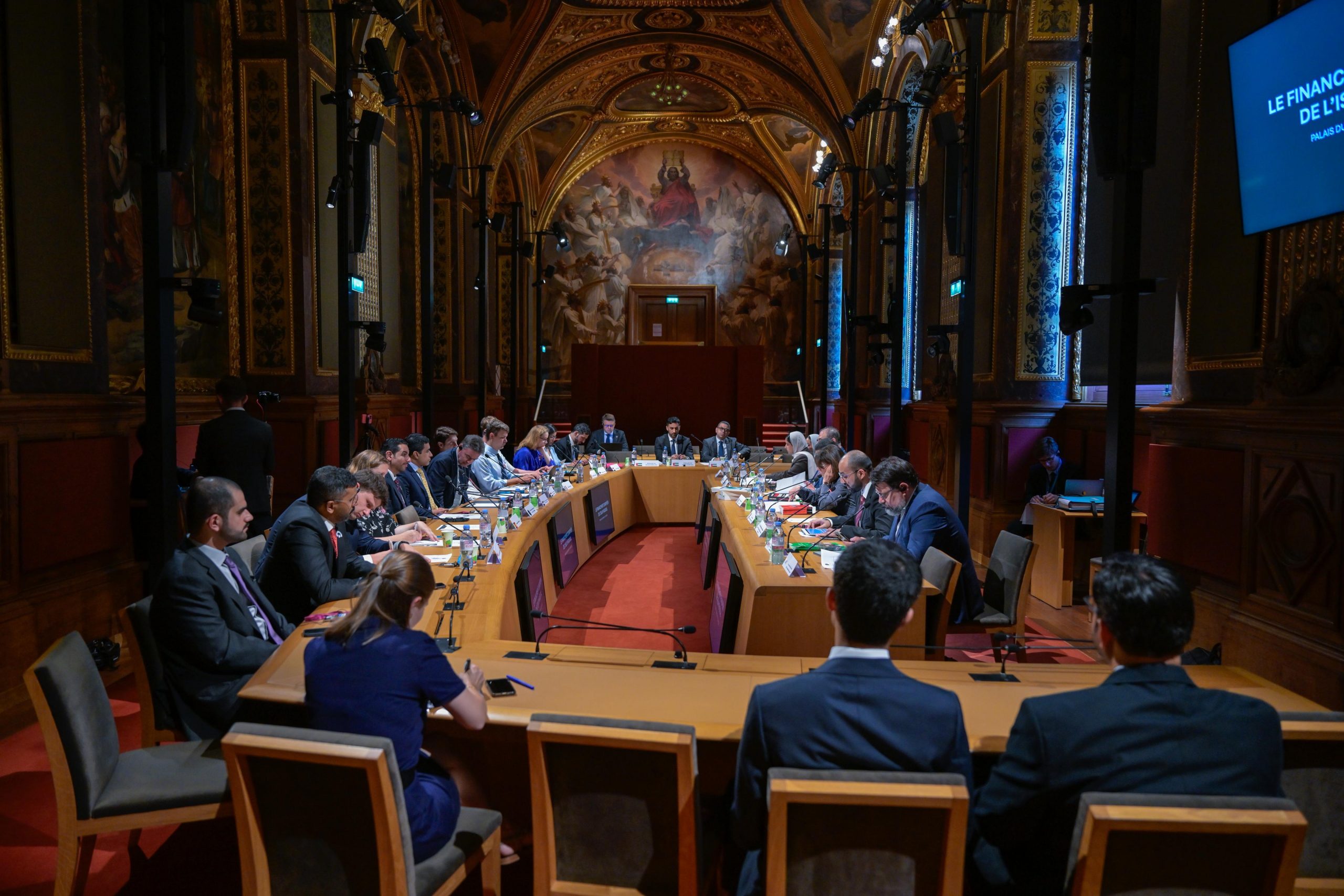A symposium held by TRENDS Research & Advisory stressed the need to stop cross-border financing that benefits the Muslim Brotherhood and its networks, warning of the intellectual and security threats resulting from such activities. It also called for broader cooperation between European and Arab countries to develop a comprehensive strategy to combat this complex phenomenon.
The symposium, organized by TRENDS in collaboration with French Senator Nathalie Goulet, was held in Salle Monory at the French Senate in the Palais du Luxembourg. Titled Toward Concerted Efforts to Stop the Financing of the Muslim Brotherhood in Europe: Challenges and Opportunities, the symposium featured prominent elites, experts, academics, and officials from Europe and Arab countries.
TRENDS Research Project
Dr. Muhammad Abdullah Al-Ali, CEO of TRENDS Research & Advisory, welcomed the audience and emphasized that financing extremist groups—particularly the Muslim Brotherhood—is one of the most serious challenges facing contemporary societies. He pointed out that since the establishment of TRENDS, it has adopted a research project to analyze the secret economic structure of the Muslim Brotherhood, asserting that understanding its financial mechanisms is a fundamental step toward halting its ideological and organizational expansion.
Dr. Al-Ali reviewed the findings of the first research seminar held by TRENDS in Abu Dhabi, which concluded that halting financial support represents a necessary starting point for protecting European societies from organizational and ideological penetration. He explained that the Paris symposium is an extension of that effort, adding a deeper European dimension through the participation of an elite group of specialists in security, economics, and intellectual discourse.
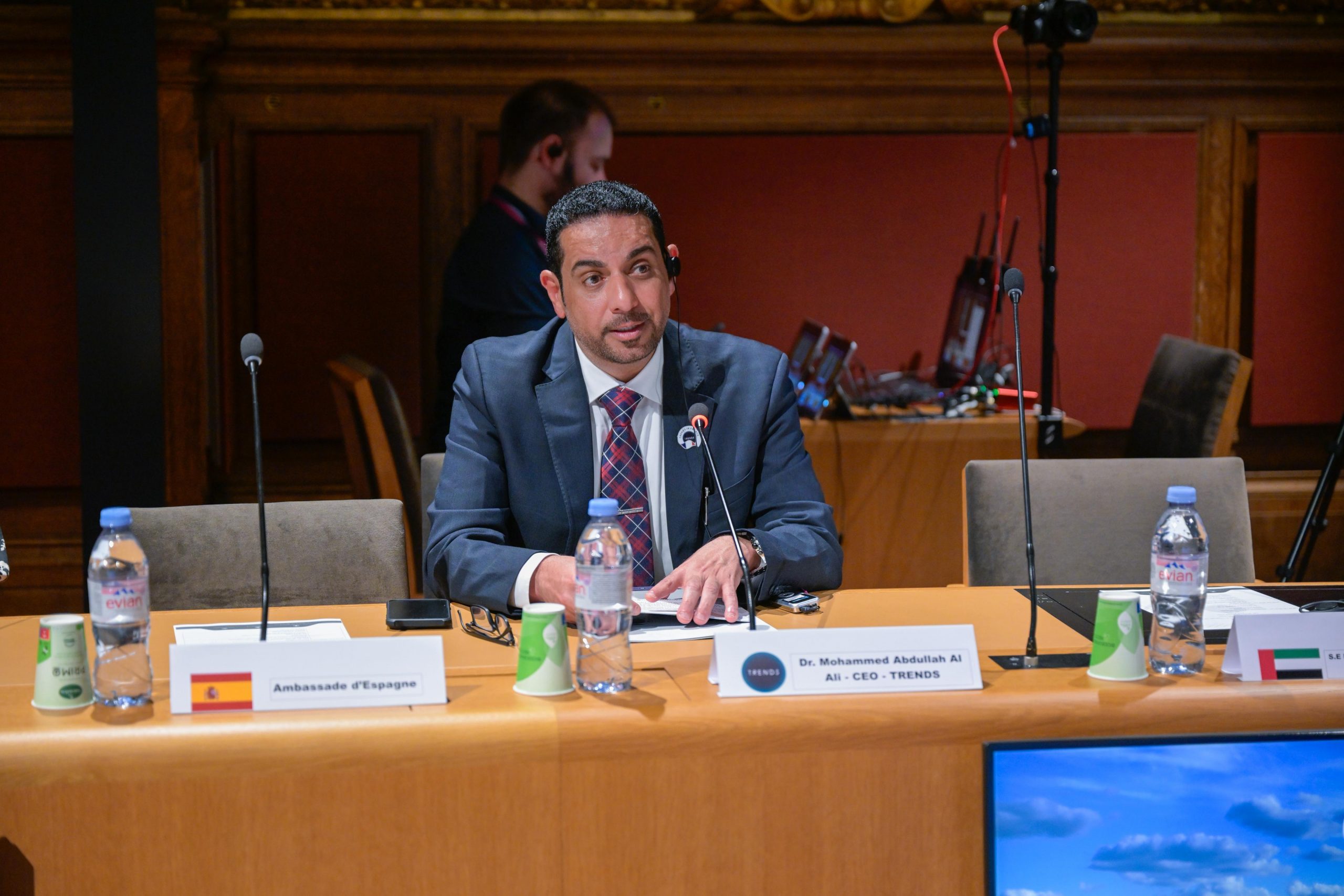
Financial Exploitation
Senator Nathalie Goulet expressed concern over the growing volume of funds allocated to Islamic studies in Europe, noting that these resources are being exploited to promote Islamism and sanitize its image. She emphasized that such exploitation poses a direct threat to efforts to combat extremism and undermines both local and international stability, calling for a reassessment of the research funding system related to political Islam.
Themes
The symposium, held in the form of a workshop, addressed several key themes. It focused on mapping the networks of the Muslim Brotherhood, identifying obstacles to halting funding, and outlining a proposed roadmap. The discussion also examined the financial structure of the Muslim Brotherhood, the patterns and dynamics of its financing in Europe, and the challenges of disrupting financial flows through Blockchain technologies. The symposium also explored lessons from the Arab experience, the importance of European–Arab cooperation, the roadmap, and the role of media and think tanks in countering extremist financing.
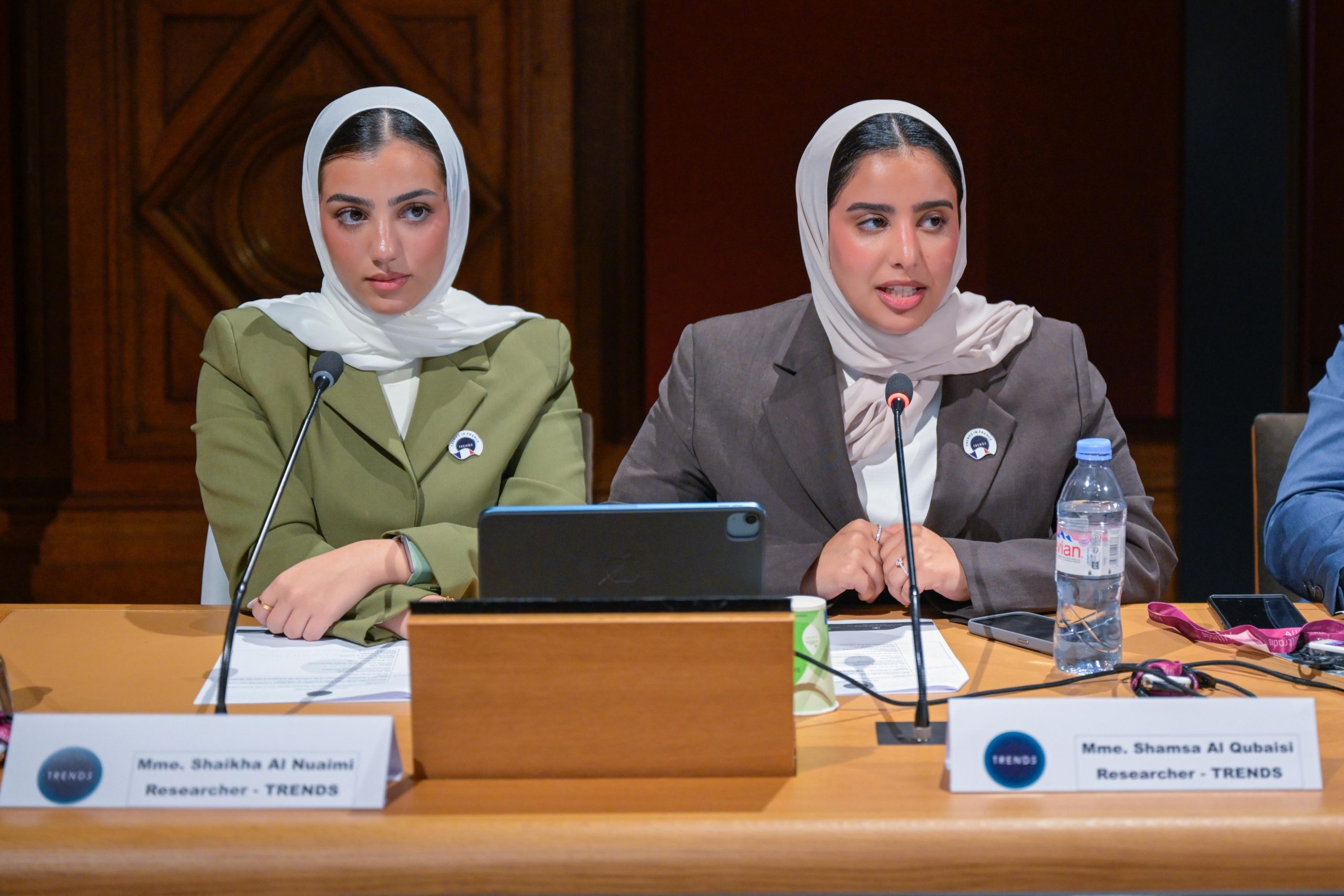
Strategic Analysis
Dr. Wael Saleh, Political Islam Affairs Advisor and Director of TRENDS’ Office in Canada, moderated the workshop. During the first panel, he addressed a critical strategic topic: Financing Networks and the Challenges of Stemming Financial Flows in Light of Cross-Border Security and Hybrid Complexities.
In his intervention, he emphasized the threat posed by the Muslim Brotherhood, noting its complex financial structure and remarkable adaptability. He argued that understanding its financing mechanisms is a prerequisite for formulating effective and comprehensive policies to counter the organization.
Dr. Saleh observed that the panel was notable for its intellectual and strategic depth. It offered an in-depth analytical perspective on the financing and infiltration of radical Islamist networks, particularly those affiliated with the Muslim Brotherhood. The panel also contributed to identifying preliminary outlines of practical responses to the complex challenges posed by this multidimensional phenomenon from legal, political, and security perspectives.
He further emphasized the importance of building on these discussions to launch new collaborative initiatives involving European and Arab institutions, with a particular emphasis on specialized research centers and think tanks. Dr. Saleh concluded that effectively confronting radical ideologies and their transnational networks cannot be achieved through fragmented efforts. Instead, it requires adopting a unified vision, broad-based mobilization, and firm, sustained political will.
Extremist Media and the Islamo-Wokism Alliance
Under the dome of the French Senate, Olivier Vial, Director of the University Center for Studies and Research, spoke at the workshop and addressed the growing influence of media outlets affiliated with the Muslim Brotherhood. He noted that specific channels, such as Al Jazeera, promote the Brotherhood’s agenda among immigrant youth and marginalized communities.
He also warned of the emergence of an alliance between Islamist movements and specific Western social movements—an intersection sometimes referred to as “Islamo-Wokeism”—which contributes to the entrenchment of extremist ideologies in European societies.
Emirati Experience
His Excellency Dr. Khalifa Mubarak Al Dhaheri, Chancellor of Mohamed Bin Zayed University for Humanities, delivered a presentation titled Lessons from the Arab Experience. In it, he highlighted the UAE’s model for dismantling the Muslim Brotherhood and promoting a discourse of moderation and citizenship.
He explained that Islam is a religion of love, mercy, and morality, rather than a political project or system of government. He further pointed out that violent movements have influenced the Muslim Brotherhood and have established secret organizations aimed at imposing change by force under the slogan of “changing the abominable.”
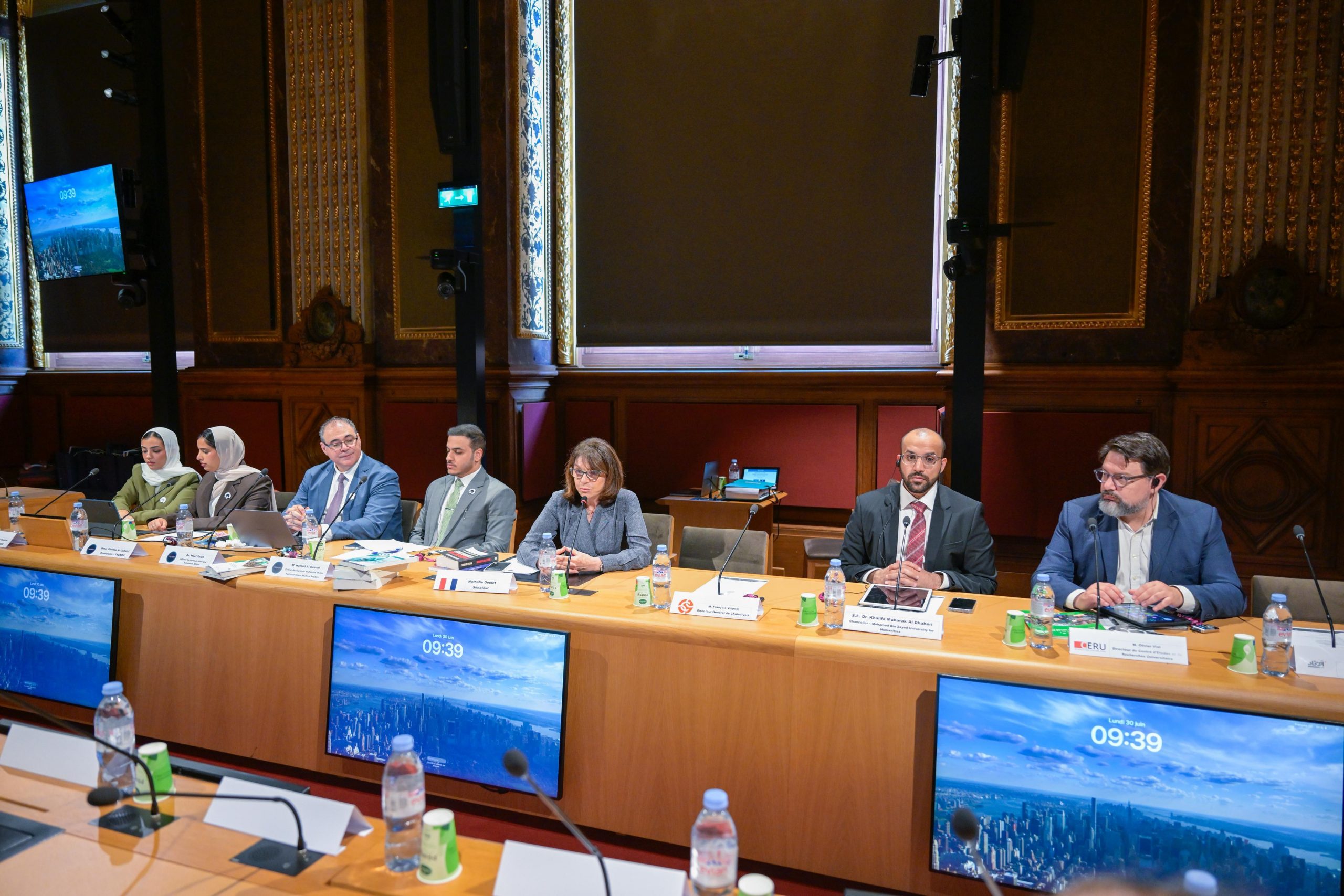
Financial Structure
In an analytical working paper, Hamad Al Hosani, Researcher and Head of the Political Islam Studies Section at TRENDS, argued that the Muslim Brotherhood relies on a centralized and sustainable financial model based on individual subscriptions, donations, and economic networks operating across Europe, Canada, and Switzerland. He pointed out that the Brotherhood can adapt to legal restrictions by using unconventional financial tools to transfer funds, which poses growing security challenges for European countries.
He stated that the Brotherhood’s financial system has evolved since its founding phase, which was initially linked to the “Islamic Transactions” company. It has undergone several stages, ranging from internal financial support to efforts to dry up its funding sources following June 3, 2013.
The group relies on individual contributions for funding, including subscriptions, zakat, and donations, in addition to support from affiliated economic institutions and international organizational networks operating in countries such as the United Kingdom, Switzerland, Germany, Canada, France, and Austria.
Think Tanks
In a joint intervention, researchers Shamsa Al Qubaisi and Shaikha Al Nuaimi from TRENDS explained that European reports—including the TE-SAT report issued by Europol—have tracked more than €140 million suspected of being used to finance terrorism.
They stressed the importance of think tanks in monitoring FATF Grey List jurisdictions through advanced analytical tools such as artificial intelligence, developing legislative frameworks, and providing cognitive support to decision-makers.
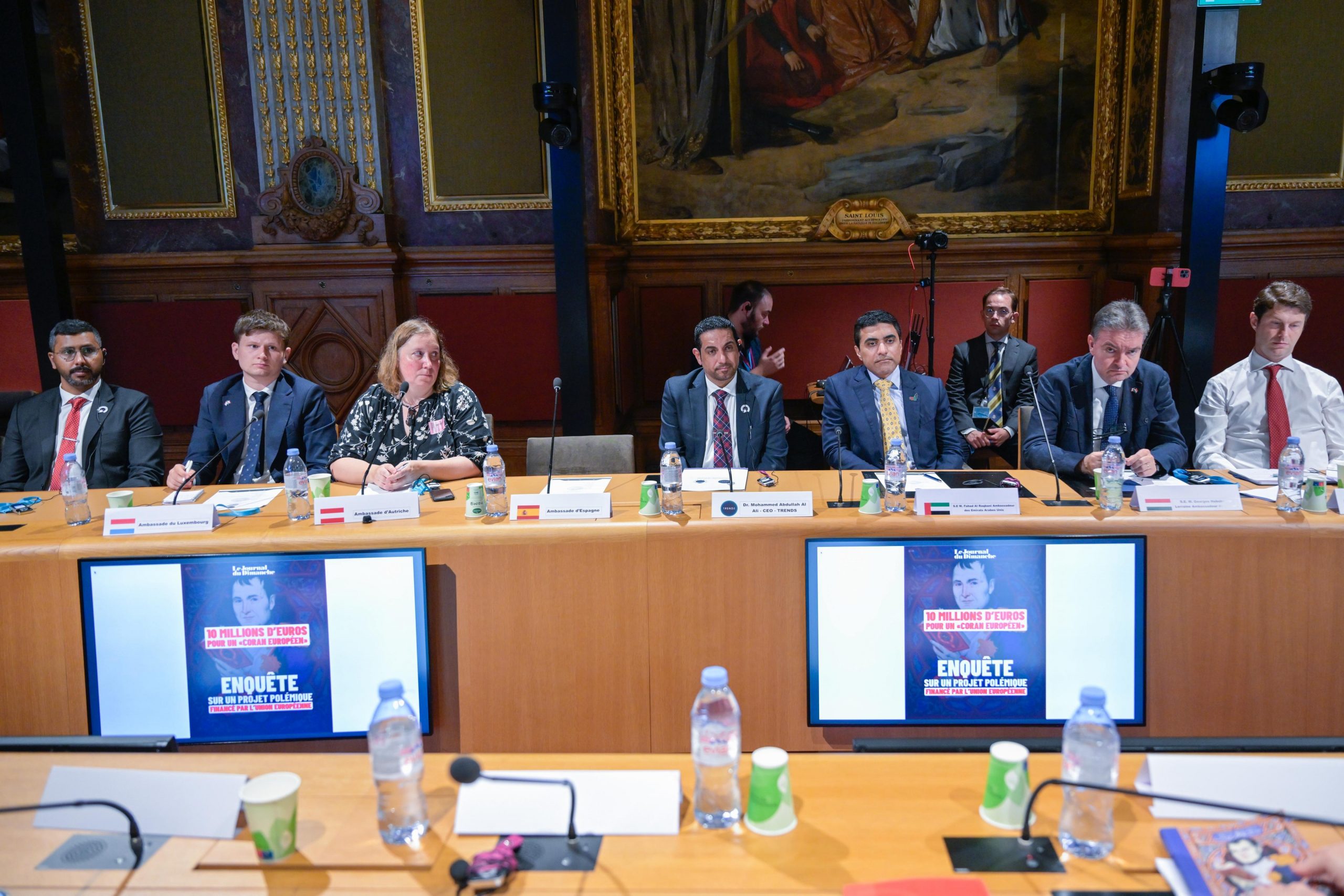
They stated that think tanks have a unique capacity to bridge the gap between governments, intelligence services, and academic researchers. As independent and flexible institutions, think tanks are well-positioned to conduct in-depth analyses that monitor “gray” threats that fall outside the scope of traditional legal frameworks.
These centers also contribute to developing regulatory frameworks, enhancing transparency in non-profit organizations, and employing advanced tools such as data analysis and artificial intelligence to detect suspicious financial patterns. Additionally, they play a vital role in raising public awareness and dismantling the mechanisms through which extremist ideologies are propagated.
The speakers emphasized that TRENDS constitutes a global model for exposing the financial networks of political Islam, particularly those affiliated with the Muslim Brotherhood. Through studies such as The Economic Structure of the Brotherhood, TRENDS has revealed the complexity of these networks. Due to its multilingual output and international research presence, TRENDS has established a shared knowledge platform that fosters global cooperation and supports decision-makers in responding effectively to evolving threats.
Comprehensive and Sustainable Cooperation
The workshop concluded by emphasizing the importance of building a European–Arab coalition across research, political, and media spheres to develop a shared understanding of the nature of extremist financing, cut off the financial roots of terrorism, and establish a unified strategy to combat the Muslim Brotherhood and its networks.



